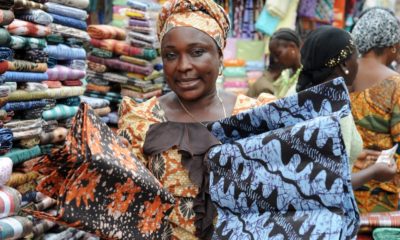Nigeria features as one of the top ten countries with the highest headline inflation rates in Africa, alongside countries such as Sudan (318.21% y/y), Zimbabwe (60.74% y/y) and Ethiopia (35.10% y/y) as at December ‘21. Over the past five years, headline inflation in Nigeria has remained at double-digit. Based on data from the National Bureau of Statistics (NBS), headline inflation stood at 15.63% y/y at end-December’21. This is a decline of 13bps when compared to 15.75% y/y recorded at end-2020.
The average headline inflation rate for 2021 is 16.98%; 377bps higher than the 13.21% recorded at end-2020. Based on our estimates, over the past five years average headline inflation is 14.32%.
Headline inflation trended upward between January to March ’21. However, between April to November ’21, consecutive declines were recorded in the headline inflation mainly on the back of positive base effects and CBN interventions into the agriculture sector. The uptick recorded in December’s headline inflation rate to 15.63% y/y can be attributed to seasonal effects on the back of increased spending during the festive period.
Inflationary pressure is still partly driven by challenges such as high energy prices, supply chain disruptions due to COVID-19, limited market access, and security challenges. For specific products, over the past year, fx depreciation in the parallel market has contributed to price hikes.
Food inflation rate stood at 17.37% y/y at end-2021. The average food inflation rate in 2021 is 20.50%, which is 440bps higher than the average of 16.11% recorded in 2020. Inflationary pressure in food can be largely attributed to security challenges, high logistics costs, storage issues, post-harvest losses, poor distribution network, and supply chain disruptions. There have been significant increases in the prices of staple foods such as bread and cereals,
potatoes, yams, meat, beans, fish, fruits, oils and fats, among others.
For instance, it costs N21,000 to buy a 50kg bag of beans in December ’20. However, a 50kg bag of beans was N56,000 in December ’21. This points towards a y/y increase of 167%. The core inflation rate was 13.87% y/y at end-2021. Meanwhile, the 12-month average of this sub-index stood at 13.14% in 2021; 285bps higher than the average of 10.29% recorded in the previous year. Based on our analysis, the highest increases in the core inflation rate in 2021 were recorded in the prices of household textile, vehicles, garments, major household appliances, hospital services, catering services, among others.
On a y/y basis, imported food price inflation stood at 17.34% y/y at end-December ‘21, increasing by 68bps. This is compared with 16.65% y/y in the corresponding period in 2020.
Over the past year, Kogi state recorded the highest headline inflation (nine out of 12 months). Meanwhile, Kwara state recorded the lowest headline inflation (six out of 12 months). It is worth noting that household baskets vary across states due to different consumption patterns.
We note that Nigeria is not the only African country that recorded a reversal in the downward trend of its headline inflation. During the past year, Ghana and Egypt also recorded upticks in their respective headline inflation rate. Factors such as sustained structural issues have contributed to inflationary pressure in Nigeria, while rising fuel prices, cost of electricity as well as health services are some reasons behind the inflation trend seen in Ghana and Egypt. Although Nigeria and Egypt have kept their respective monetary policy rates unchanged, at its meeting held in November ’21, the Bank of Ghana (BoG) hiked its policy rate by 100bps to 14.50% on the back of rising inflation.

 Forex3 weeks ago
Forex3 weeks ago
 Naira2 weeks ago
Naira2 weeks ago
 Billionaire Watch2 weeks ago
Billionaire Watch2 weeks ago



 Naira3 weeks ago
Naira3 weeks ago






 Naira2 weeks ago
Naira2 weeks ago




 Naira1 week ago
Naira1 week ago




 Naira4 weeks ago
Naira4 weeks ago






 Naira1 week ago
Naira1 week ago
























